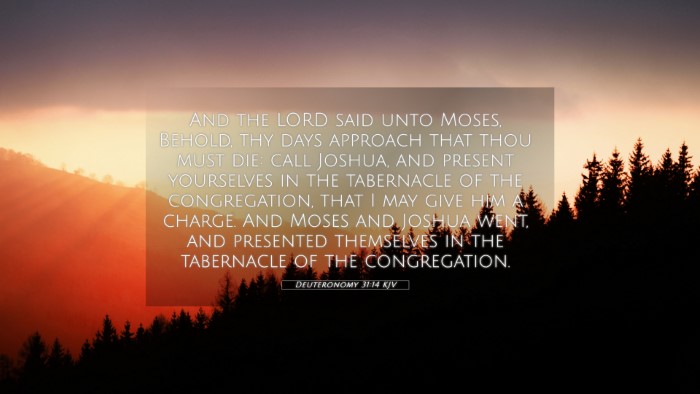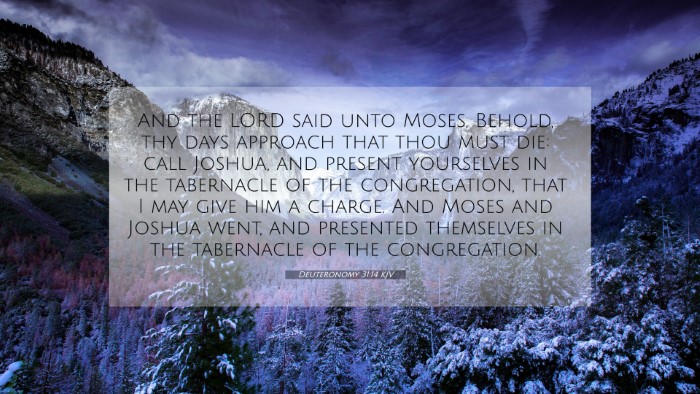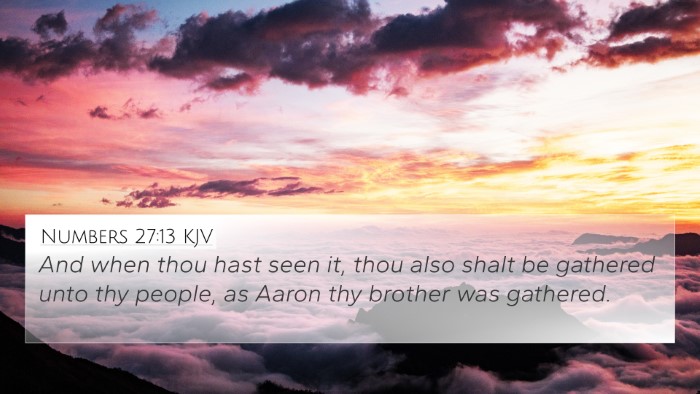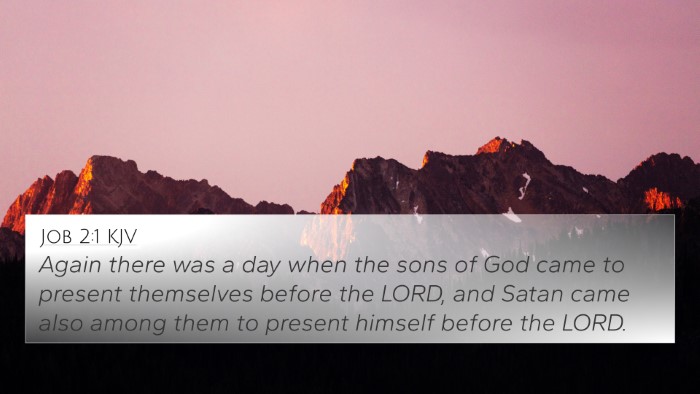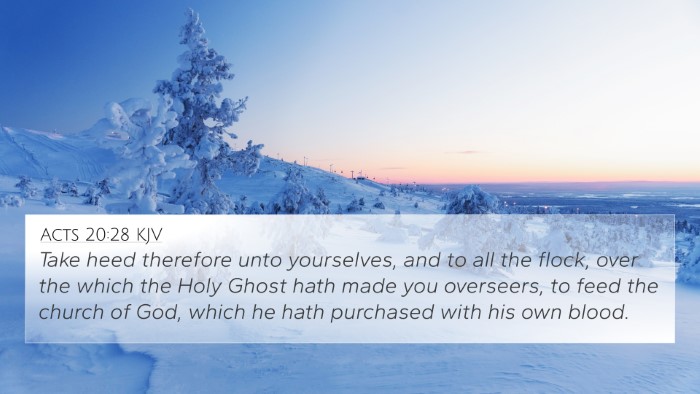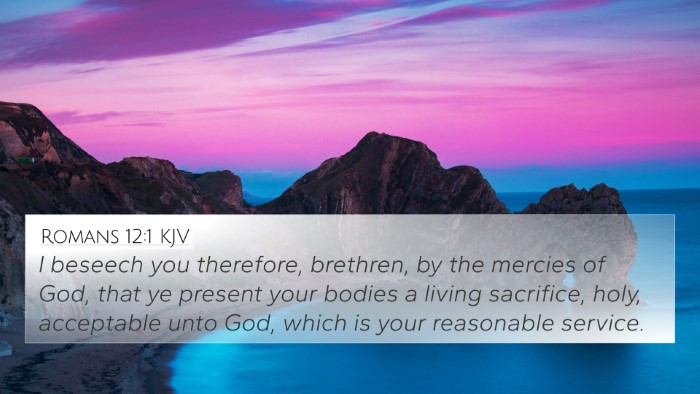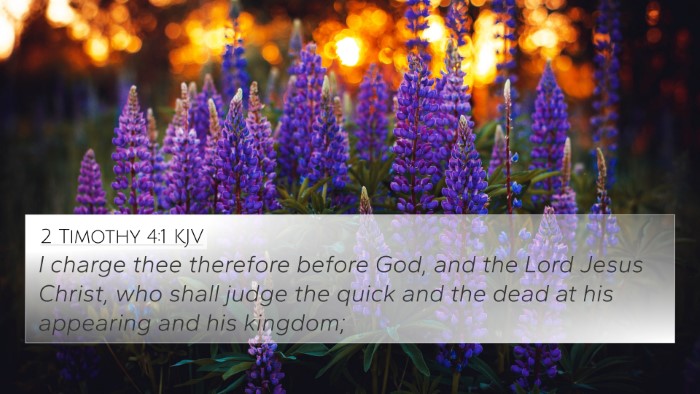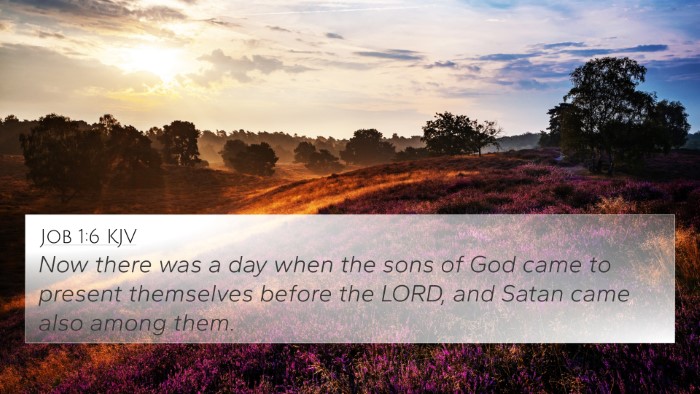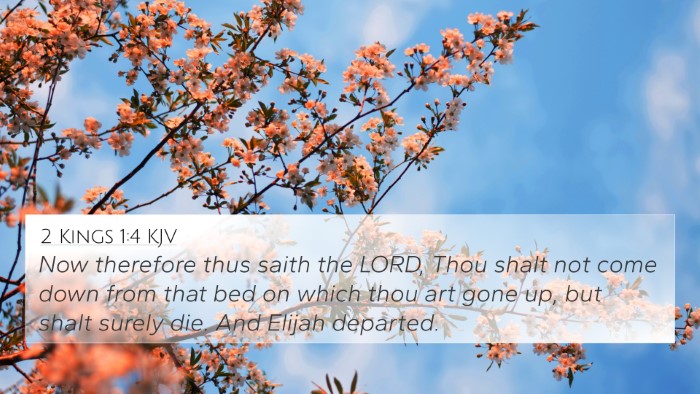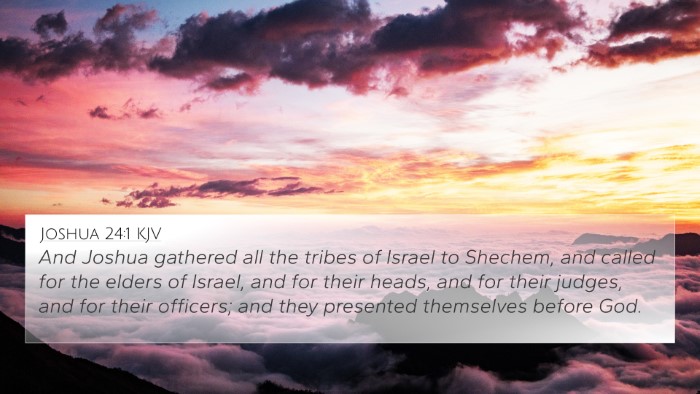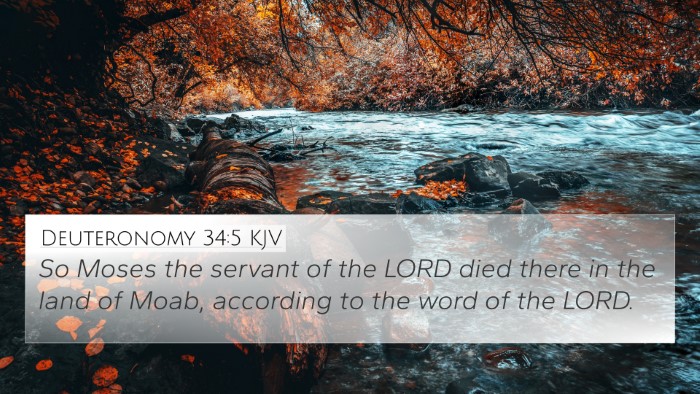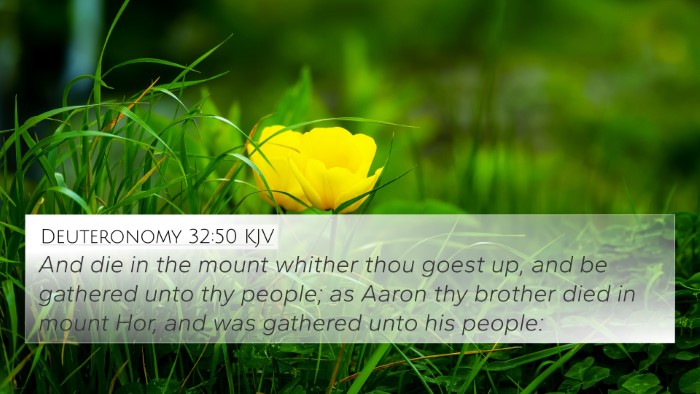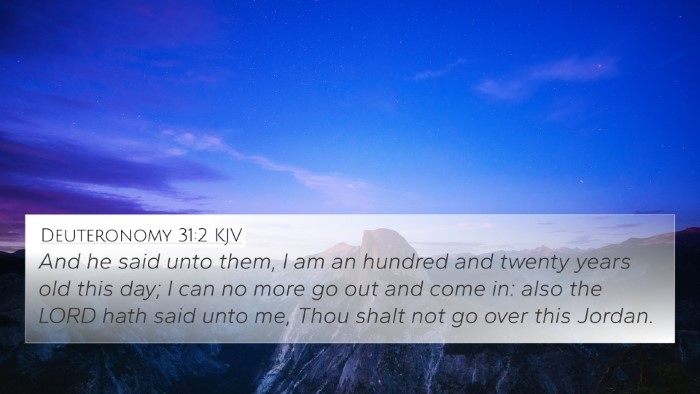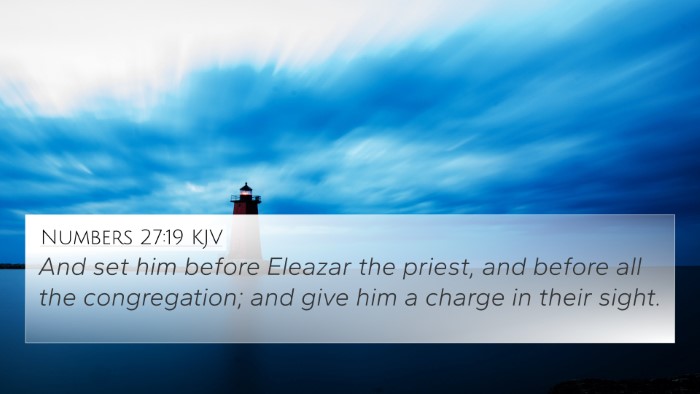Understanding Deuteronomy 31:14
Bible Verse: Deuteronomy 31:14
The verse states: "And the LORD said unto Moses, Behold, thy days approach that thou must die: call Joshua, and present yourselves in the tabernacle of the congregation, that I may give him a charge. And Moses and Joshua went, and presented themselves in the tabernacle of the congregation."
Summary of Key Themes
- Transition of Leadership: This passage marks a pivotal moment in Israel's history as Moses prepares to pass the mantle of leadership to Joshua.
- Divine Consultation: The instruction to gather in the tabernacle highlights the importance of seeking God's counsel in moments of change.
- Preparation for the Future: The passage reflects God's plans for Israel's future under Joshua's leadership.
- Accountability and Responsibility: The task given to Joshua underscores the weight of leadership and accountability before God.
Bible Verse Cross-References
To gain a deeper understanding of Deuteronomy 31:14, several related verses can be examined:
- Deuteronomy 1:38: References Joshua's role as the leader who will guide Israel into the promised land.
- Joshua 1:1-2: This passage illustrates God's commissioning of Joshua after Moses' death.
- Numbers 27:18-23: Details God's selection of Joshua as Moses' successor.
- Deuteronomy 34:9: Highlights Joshua being filled with the spirit of wisdom because Moses laid his hands on him.
- 1 Chronicles 22:5: Emphasizes David's preparation for Solomon to build the temple, mirroring leadership transitions.
- 1 Timothy 4:14: A New Testament reflection on the importance of ordination and the passing of leadership roles.
- Matthew 28:18-20: Jesus’ command to His disciples can be viewed as a significant commissioning of new leaders in the church.
- Hebrews 13:7: Encourages believers to remember and follow the teachings of their leaders, further underlining the theme of leadership succession.
- 2 Timothy 2:2: Reflects Paul’s instruction to Timothy about entrusting the teachings to reliable individuals, echoing leadership continuity.
- Acts 1:24-26: Description of the choosing of Matthias as an apostle, displaying the divine process of leadership selection.
Detailed Examination of the Verse
Deuteronomy 31:14 serves as a profound turning point in the narrative of the Israelites as they approach the promised land.
Transition and Commissioning:
This verse depicts the moment Moses, after leading the Israelites for decades, acknowledges that his time is nearing its end. Interactions within the tabernacle symbolize the profound relationship between God and His leaders. By calling Joshua at this moment, Moses affirms his trust in God's choice and prepares both Joshua and the people for impending changes. As Matthew Henry points out, the strength of Joshua's leadership will come from his reliance on God's authority.
God’s Sovereignty:
This narrative reinforces the belief in God's sovereignty over leadership transitions. According to Adam Clarke, the decision to appoint Joshua exemplifies God’s continual guidance over His chosen people and the fulfillment of His promises.
The Value of Spiritual Gathering:
In the act of calling Joshua into the tabernacle with him, both men set an example of seeking divine validation for leadership. Albert Barnes emphasizes that it was not merely a formal appointment but a sacred summons where Joshua would receive strength and instruction directly from God.
Thematic Connections
This passage can also be connected thematically to various aspects of scripture that relate to preparation and obedience, especially in the realm of leadership:
- Divine Guidance: Proverbs 3:5-6 extols trusting in the Lord for direction, a theme mirrored here.
- Leadership Accountability: James 3:1 warns of the stricter judgment that leaders face, which relates to Moses' serious responsibility in appointing Joshua.
- Empowerment through the Spirit: Acts 1:8 illustrates how leaders are empowered by the Holy Spirit, just as Joshua was expected to be.
- Legacy of Faithfulness: 2 Thessalonians 2:15 encourages holding fast to traditions passed down, reflecting Moses' role in empowering Joshua.
Conclusion
Deuteronomy 31:14 stands as a testament to the importance of divine appointment in leadership. As believers today contemplate this verse, they are reminded of the sacred duty that comes with leadership roles within the church and community, emphasizing the continual need for prayer and reliance on God. Understanding these connections through established biblical commentary and cross-referencing highlights the unity and purpose throughout Scripture.
For those engaged in deep study and reflection, utilizing tools for Bible cross-referencing can enhance understanding. Various methods such as a Bible concordance or a cross-reference Bible study guide can facilitate identifying relationships and thematic connections that strengthen one's interpretation of God’s Word.
By exploring the links between verses and the overarching biblical narrative, believers can enrich their faith and response to God's call in their lives through established examples of leadership as portrayed in the Scriptures.

